LOST 029 - Everybody To Get From Street
Unpacking the TV show LOST — Season 3: Episodes 10-12
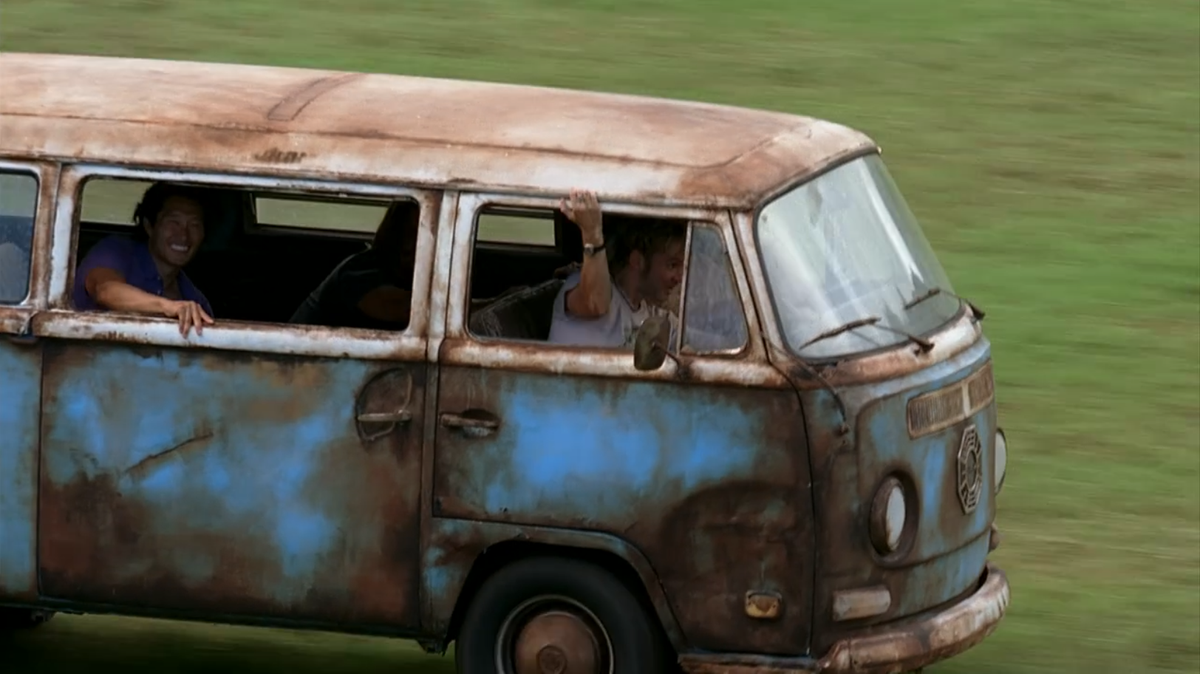
Hey everyone, I write about the TV show LOST sometimes. If you're relatively new around here, it's understandable that you might not know that, since the updates are far less frequent than they used to be. (It used to be every other week, and now it's every third month or so. Personally, I'd like to find a happy medium of once a month, because my interests include LOST and mediums, and also happiness.)
If this sort of thing intrigues you, you can start the journey here.
This one is going to pick up where we left off last time, and cover a few episodes of Season 3—episodes 10-12, to be specific.
Here we go!
Previously, on LOST: Oceanic Flight 815 crashed on an island of mysteries, and survivors of the crash are embroiled in those mysteries. At this point they're dealing with 1) an occasionally murderous supernatural being made out of black smoke; 2) occasional whispers and occasional manifestations from ghosts of dead people—usually dead people they know; 3) a con artist who won't stop giving them derogatory nicknames; 4) a massive amount of electromagnetic energy at the center of the island that seems to pose a credible threat of planetary destruction; 5) a mentally unbalanced Frenchwoman with a rifle; 6) a Scotsman who sees the future; and 7) the remains of a large-scale scientific operation called the Dharma Initiative, whose facilities and tools have been taken over by a strange and secretive cabal of frequently cultish island-dwellers. Our heroes call this cult "The Others," but I am going to refer to them as "Dharmite Jacobians" because I am spoiling the hell out of this show, and I want all of you to remember at all times that what we are watching is (unbeknownst to almost all of our characters) a struggle between two supernatural beings over the continued existence of reality itself and the worthiness of human beings to inhabit it, and the entity who believes that reality should exist and that humans are worthy to inhabit it is represented by an as-yet unseen and ageless man named "Jacob," and we're going to find out that it is Jacob that the Dharmite Jacobians worship, or at least who they believe they worship.
And I say the Dharmite Jacobians because there are different factions of Jacobians, and this is the one that lives in the former Dharma facilities.
The leader of the Dharmite Jacobians is named Ben Linus, and he kidnaps, sort of a lot. More than you ought to. He mostly kidnaps kids, partly because women on the island all die during childbirth for unknown reasons so they need new members, and partly for reasons of his own, and maybe partly because "kid" is right there at the start of the word kidnap. Who knows? The man has secrets. Recently he kidnapped our protagonists' leader, Jack "Of Course" Shephard, because Jack of Course is a spinal surgeon, and Ben had a spinal tumor that needed an operation. He got it!
That's probably enough recap. Look, there's a lot. This is a weird-ass show.
O B S E R V A T I O N
I've made a lot in recent installments of the slack and frequently stultifying nature of the front half of Season 3, and about the way this trend is generally attributable to the open-ended nature of early aughts network TV, whereby shows just kept going as long as there were ads to sell, and usually only stopped once it got bad enough that people stopped giving a shit. This is still the model in many cases and it's fine for an episodic show like say Law & Order, but it's hard to know how far to progress a story toward a planned endpoint if you don't know when that endpoint is going to be. This has resulted in a fair amount of vamping, as the show pushes the larger story forward in tiny increments (or not at all), while focusing on increasingly unimportant details. Meanwhile the show's once-revelatory flashback structure has grown increasingly threadbare, as the writers struggle to find yet another reason for Kate to be tortured by her life on the run, or yet another example of an occasion when Locke put his faith in the wrong person.
Good news: We're now at the point where the producers prevailed upon the network to set an end date—a decision that allowed the show to move forward.
Bad news: There were still a few "vamping" episodes in the can. We'll be looking at those a bit today.
Medium news: There's still plenty to enjoy here.
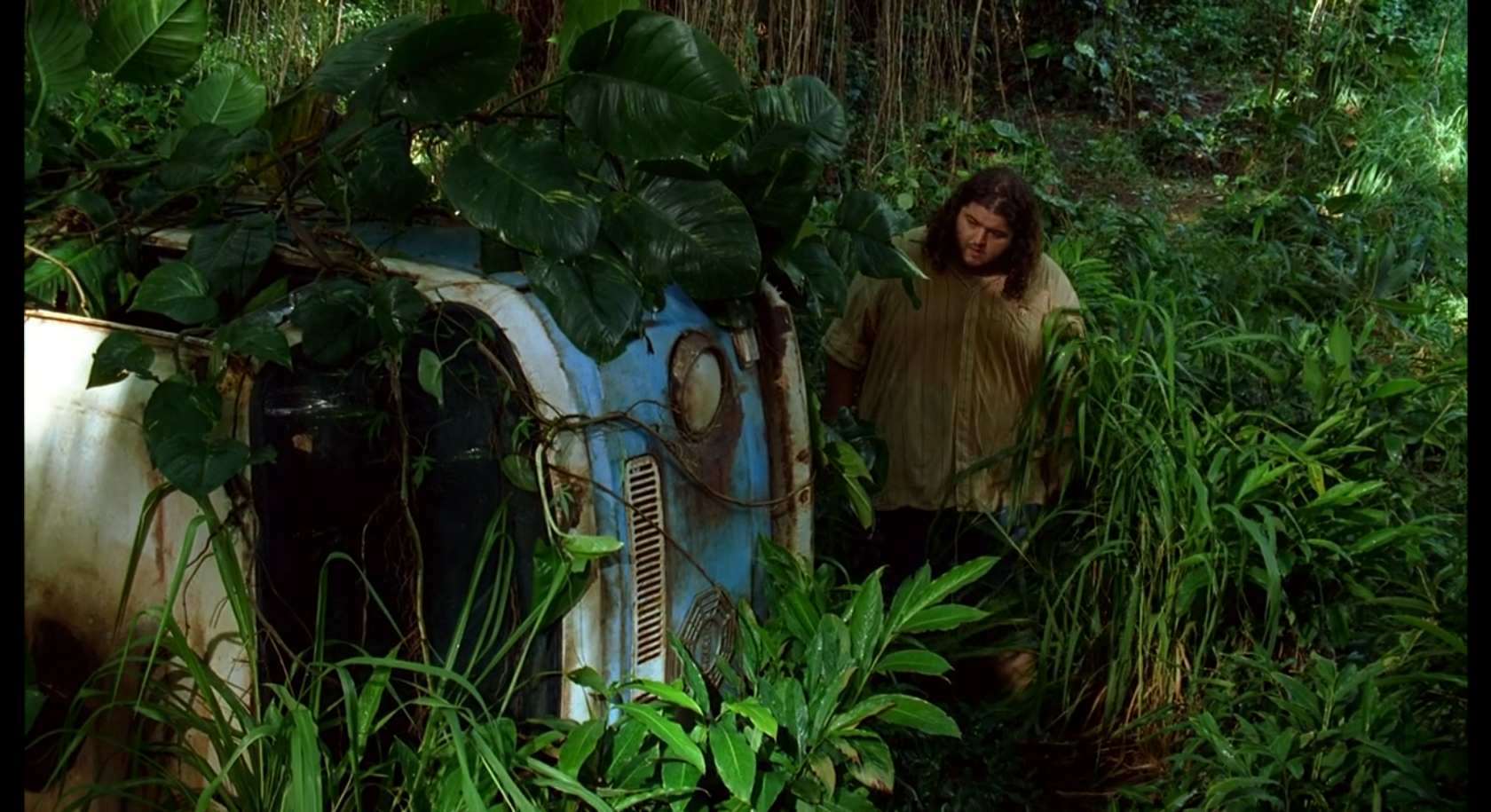
Episode 10: TRICIA TANAKA IS DEAD (Hurley): Mayor of the Beach and overall best dude Hurley takes center stage again, in a show that starts gruesome (Vincent the dog come trotting up with a desiccated human arm in his mouth) and ... kind of stays gruesome (they find the body and there's a lot of wacky skeleton business), but also sort of lightens up, because it's Hurley. The skeleton belongs to a Dharma Janitor named (per his coveralls) Roger Work Man, and he's in a Dharma 70s style van loaded up with Dharma beer that at this point has to taste as flat and skunky as a ... flattened ... skunk. Look guys, not all the metaphors are going to be bangers here. Just move past it.
Hurley, aware that everyone, including himself, is pretty bummed due to all the recent kidnapping and murder and quantum probabilities of fated Charlie death (long story), decides that fixing up the van is what's needed to cheer everyone up, including himself. Then he and Sawyer and Jin and Charlie all fix it up, and they celebrate life, and it's all sort of sweet and inconsequential ... although it does set up things that will come back later at key times, which makes me like this filler episode more than I otherwise would.
In the flashback, Hurley is still a lottery mega-millionaire, and still thinks the money is cursed because of the numbers he used to play them. We also learn that Hurley had a deadbeat dad that abandoned him as a child, and also that his deadbeat dad is Cheech Marin, or is at least played by Cheech. That's fun. There's some business about the two of them working to fix a car, which gives Hurley's attempts to fix up the van a bit of added poignance. Also one of Hurley's chicken restaurants gets destroyed by a meteor (no, really), which is one of the silliest things the show ever does.
In the B story, Kate and Sawyer, who recently escaped the Jacobian's clutches, return to Oceanic Beach, and LOST gives us one of the "friends reunited" montages they do so well. Sawyer chooses to obey Jack's orders to not ever try to rescue him (Jack's made a deal with Ben to get off the island), but Kate of Course knows that she knows what's good for Jack better than Jack does, and recruits a posse to get him back, including Sayid, Locke, and the aforementioned unbalanced Frenchwoman Rousseau, who agrees to come along because Kate's escape was facilitated by Ben Linus' daughter, a young woman whose name and description very much matches the brief for Rousseau's missing daughter, kidnapped as an infant by serial napper of kids Ben Linus lo these many years ago. This plot will quickly become the A story, and a pretty good A story it will be, too.
There's a now-traditional montage of slow motion magic hour beach life, where our characters all interact with one another after having had their most recent adventures. It's become a little cliche by now.
But I believe it's the last one we'll ever get.
The moral is, you never know when what's become familiar to the point of boredom will end. Enjoy it while you have it.
End of Episode 10.
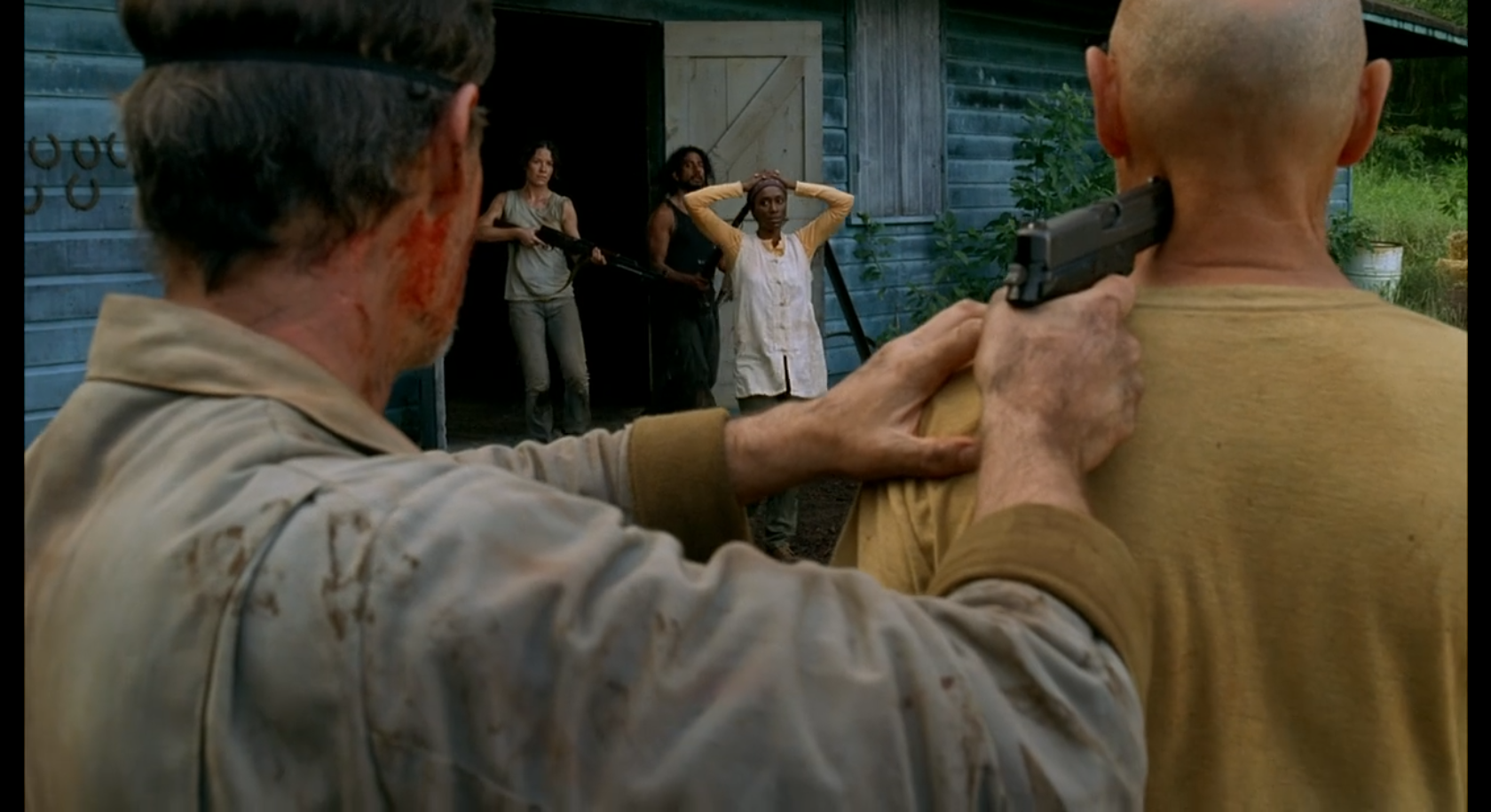
Episode 11: ENTER 77 (Sayid): In what is now the A story, The Gang Goes to Get Jack Back. Before long they come upon a Dharma station unlike any other: a farmhouse that's furnished with livestock, and a cat, and a satellite dish, and a one-eyed Russian who winds up telling our friends a bunch of truths and a bunch of lies. The Russian's is named Mikhail, as many Russians are. He represents himself to the gang as a frighteningly competent former soldier, which is what he is. He claims that the station he's in is called the Flame, and it is used to communicate with the outside world, which is true. He claims that the satellite dish doesn't work, which I don't believe is true but will soon be true anyway, and that it hasn't worked for years, which is absolutely a lie. He also represents himself as the last living member of the Dharma Initiative after the "hostiles" staged a purge, and while there was a purge, the rest is a lie. He's not Dharma, and he's not alone.
Sayid, being the suspicious and savvy guy we've come to know and love, figures out that Mikhail isn't on the level right from the start, and before long there's a big fight and whatnot. The fight ends when Kate gets the drop on Mikhail and he is a captured Russian. Bozhe moi!
Then there's some back and forth as Mikhail gets the drop on Locke but Sayid and Kate get the drop on his companion, who is none other than the mysterious Jacobian, Beverly Klugh. (She was last seen overseeing the miseducation of Walt—remember him?) They all get the drop on each other for a while, culminating with Mikhail getting the drop on all of our expectations by shooting Klugh—reluctantly, and at her own insistence. The idea I guess being that Jacobians would rather die than be captured. This is shocking but also deeply annoying because Klugh was a fascinating character conveyed by a really great actor, who we will never learn more about, and it reminds me once again about the revelations that the showrunners ran an abusive writer's room and summarily dispatched fan-favorite minority characters because they couldn't imagine what to do with them, and I consider this to be among the most egregious examples of this. God damn it. RIP Bev Klugh.
The upshot of all this is that Mikhail is captured, and our heroes have access to a satellite dish. Ho Ho Ho.
Or anyway, they have access to it until Locke blows up the whole Flame station (by Entering 77 into another mysterious Dharma PC, hence the title), leaving our heroes with nothing but some schematic drawings of the island's electrical grid, some serious questions as to the wisdom of keeping a prisoner as dangerous as Mikhail alive, and even more serious suspicions as regards the frequently murky motives of John Locke.
In the end, Sayid (informed by his flashback) decides he's not a killer anymore, and keeps Mikhail alive. The gang, who had according to Locke been following a compass bearing determined by Locke's intuition about hidden meanings on the late Mr. Eko's bible-thumping stick (long story), now follows the electrical schematics toward the Jacobian living quarters.
In the flashback, we're reminded again that Sayid was a torturer for the Iraqi Army in the 90s, and that he's wracked with guilt over the man he has been while trying to be somebody better. In this installment, he is living under an assumed name in Paris (egregious background shot of the Eiffel Tower and all), where he's recognized by a former victim, captured by her husband, and brutally interrogated. Eventually, after he has acknowledged the truth about his crimes, forgiven and released. It features some nice acting by Naveen Andrews, but I don't think it gives us anything particularly new to chew on, story-wise or character-wise.
In the B story, Hurley schools Sawyer in ping pong, winning a wager that leaves ol' Con Air forbidden from calling his companions by derogatory nicknames anymore. Cough.
End of Episode 11.
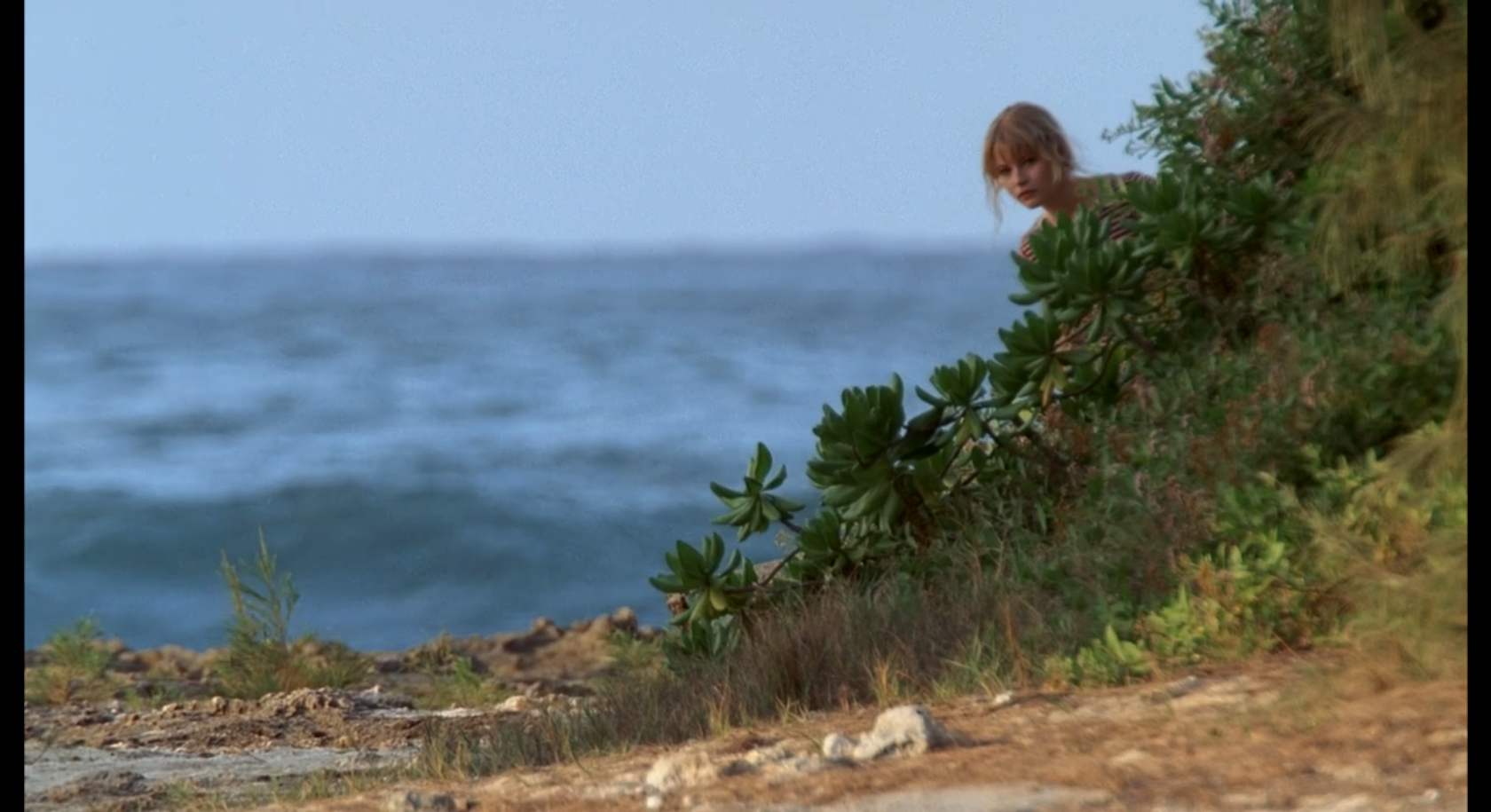
Episode 12: PAR AVION (Claire) - This is the final Claire episode, which is weird since Claire isn't going to die or leave the island. Anyway, it's an A story that plays more like a B story, especially since it recycles Bernard and Rose's plotline from last season. Poor Claire. Oh well, here's the story.
Claire and Charlie, the on-again-off-again young cuties, are on again. Charlie's been dealing with the fact that Desmond can very reliably predict the future and is very consistently predicting (and staving off) Charlie's inevitable death. This has made Charlie understandably stressed, which has caused him to (somewhat less understandably) lash out at his friends. But Hurley came along with his 70s van scheme and restored Charlie's love of life, and now Charlie is being an attentive and nice prospective boyfriend, putting together breakfast fruit platters and arranging babysitters for beach picnics. Things kick off when Claire has a (fairly astute) idea to attach an SOS message to the foot of a scientist-tagged seagull. Unfortunately, Desmond intimates to Charlie that this scheme will result in yet another in a string of universe-fated Charlie deaths, which turns Charlie back into a supercilious little butthole again. Before you know it, Charlie is telling Claire that her idea is a dumb stupid waste of time, and the Chairely relationship is back off again. Eventually Claire gets Desmond to admit the truth about Charlie's predicament, and moreover she believes it, which really makes her a better friend than Charlie often deserves. Charlie meanwhile helps Claire put the message on the bird, which will in fact do absolutely nothing just as Charlie predicted, but it's a nice letter. Chairely is back on again!
In the ongoing B story that is really the A story, the gang continues their trek toward the Dharmite compound. Mikhail informs them of some stuff that's mostly true and very important, which I'll unpack in the "belief" section. He makes it clear that he knows a lot about them, and he's about to reveal the secret of Locke's pre-island disability when they are distracted—they've come upon a strange and ominous set of pylons arranged like posts in an invisible fence.
Nobody's very interested in crossing between the pylons, so Locke, who is clearly interested in shutting Mikhail up on the subject of John Locke And His Secrets, takes it upon himself to toss Mikhail through the invisible fence. The Russian thanks him and then starts to foam at the mouth and bleed from the ears, and then drops to the ground. He seems all-dead, but as we'll learn before too long, he is only mostly dead, as is often the case on this island.
The gang decides to climb over the pylons, using some tree trunks. Sayid and the rest of us become even more suspicious of Locke's motives, and even more suspicious still when it is discovered that Locke has appropriated some C4 from the Flame station—you know, just 'cause. He'd claimed he didn't know about the C4. Shady shit, Locke.
In the flashback, we learn that Claire's mother has been in a coma for years from a car accident, and Claire blames herself, partly because she was driving but mostly because everyone else blames her, too. The medical bills are being paid by a mysterious benefactor, I presume because the writers are American and have forgotten that Australia is a somewhat more civilized country where "medical bills" aren't a thing (Australians correct me if I'm wrong here). Anyway the mysterious benefactor is none other than Christian Shephard, Jack's dad, who has a secret second family all the way across the Pacific. That's right, Christian is Claire's dad. Claire is Jack's sister. Jack is Claire's brother. Neither of them know it, even though I'm pretty sure we already did from a prior flashback. But anyway that's why when Christian hit bottom he went to Australia.
In time, the away team arrives at the Dharma barracks we saw in the season's opening scenes. Hidden in the bushes, they see Jack running toward their position. An escape? Nope! He's playing football with their former enemies. Sayid and Locke and especially Kate watch in horror as their friend goofs around with their kidnappers, and then spikes the ball.
End of Episode 12.
The Reframe is a reader-supported publication with a pay-what-you-want subscription structure. Free or paid, everyone gets the same newsletter. If you would like to support my work, and if you can afford to, please consider upgrading to paid.
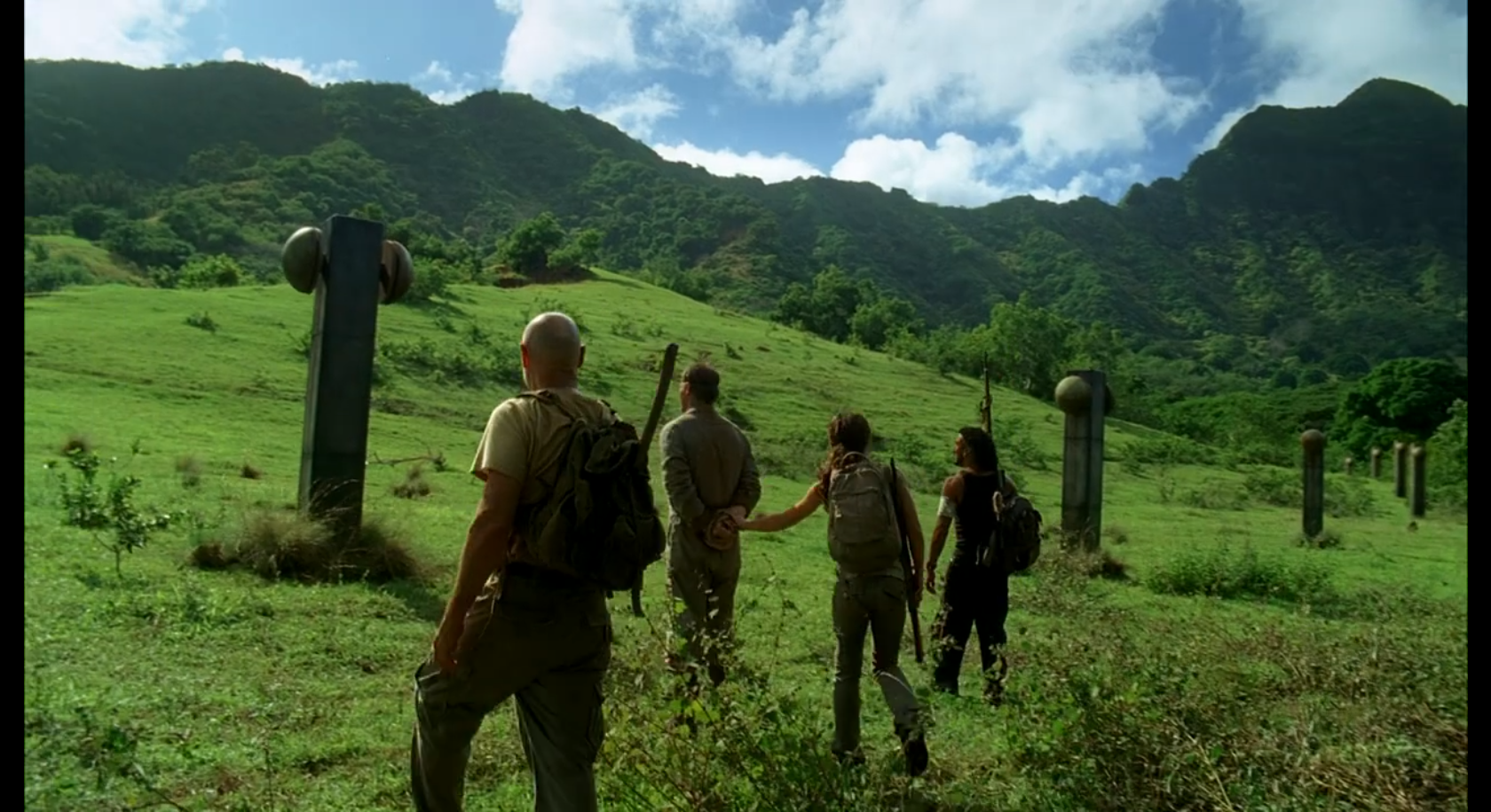
B E L I E F
LOST is a show that tells you one thing while showing you another, featuring characters who believe things they've been told even when those things run counter to what they've observed, and characters who observe things and then tell others (and, through the convention of narrative fiction, us) things that run counter to what can be observed. All of this can trick these characters (and, if we're not careful, us) into believing that a clearly untrue thing we are told is the truth, and the thing we have observed must not be the truth at all, but just a mistake made by a careless god (or, in our case, a careless writer).
Because of this, what we do around here is observe and then decide what we believe based on that observation. It's sort of our whole thing.
1) Animals. I've written in the past that while the entity I've been calling The Adversary tends to appear to people in the guise of a person (usually deceased) known to and loved by Its target, the entity known as The Island seems to manifest through animals. Example: one of the show's very early episodes features a moment when beloved island pooch Vincent is shown, quietly watchful. It's a moment that at the time suggested deep mystery, but which, as seasons passed, most viewers assumed was just a red herring. No character ever says "an ancient and powerful entity was using Vincent as Its eyes and ears in that moment." But I'd argue that's what the show was suggesting, in a way that is never overtly explained.
Anyway, we've got a couple new moments I believe are in support of this idea. First, it is Vincent who brings Hurley to the van, and that discovery will not be without consequence. Second, the Flame station has a cat that clearly reminds Sayid powerfully of another cat, one that is entangled in the key moment of learning and growth in his life we get to see in his flashback story. Just cool little moments that one can take or leave; I choose "take."
2) Dharma artifacts. We've got a fence and dish, submarine and underwater beacon. This was the stuff I adored on first watch, as a bunch of threads I'd been wondering about for a very long time started to come back in story-relevant ways.
Let's do the beacon first. Mikhail mentions that his group could indeed come and go from the island, until the electromagnetic event from 2 weeks back island time—when Locke neglected to enter the sequence, and Desmond set off the failsafe bomb in order to preserve reality. The way Mikhail puts it, the problem is that the pulse knocked out the underwater beacon, which they rely upon to find their way back. I believe this is a half truth, and I'll explain why presently. I'd like to just quickly note that waaaay back in Season 1, Sayid found a cable heading into the ocean, which never got mentioned again, until (glancingly) now. So, there's an underwater beacon. We'll learn more about where it's situated pretty soon, but for now let's just say that it's powered by that cable, and I love how long they took to pay off that little one-off WTF mystery.
There's also the satellite dish, which Sayid assumes was also knocked out by the electromagnetic pulse. Because of this assumption, he presupposes that Beverly Klugh and Mikhail were at the Flame on Ben's orders to get it back online. Maybe so. I think it was still functional, actually. I suspect they were there to prevent it's use. But before I explain why, I want to think about the perimeter fence, which apparently runs on some sort of sonic frequency. It's not good for human people to go through, but (as our heroes demonstrate) it's perfectly safe to go over. Even with a lot of security (and it will be fun someday when you guys find out who is running that security), I don't think it would do much to keep out the Jacobian faction that Dharma referred to as "hostiles."
As we'll see before long, its true purpose is keeping the Black Smoke—that is, the true physical body of The Adversary—out of the Dharma Initiative's facilities. It may even be successful at that job—it's not shown failing, and it's shown working at least once— though it is strange that in smoke form The Adversary can't just fly over the fence. I guess we'll chalk that one up to "just because, that's why," though I can't help but note that we are going to see that different people on the island have different methods of containing and constraining The Adversary, and for the most part, while the people employing them consider them to be effective, if we pay attention to how they work in practice, not so much. For example, the two main places we'll see with anti-Adversary perimeters also are shown to have subterranean paths and chambers giving The Adversary direct access to the heart of the protected area and to people of power and influence within those spaces. It's worth pondering whether these methods for constraining The Adversary actually do so, or if The Adversary finds it useful to establish various fictions among people who It has infiltrated that they are the pure Jacobians, keeping themselves free of Adversarial influence, even though the opposite is true.
Another thing I find cool about this fence is that it helps explain the concept of a "Dark Territory" of the island referenced in the past. There's an area where the Black Smoke is active, and other areas that are free of It, or at least areas that people believe to be free of It.
3) "Not on the list." There's been a decent bit of talk about lists on this show so far, and here we have the most specific instance yet. Mikhail's conversation with Kate is probably the most significant progression of the larger buried understory, and as such is worth quoting in full.
Line by line, now:
Kate: How did you get onto this island?
Mikhail: I was recruited when I was 24. I was approached by a man —
This is clearly meant as a reference to Jacob. The question is whether or not Mikhail was approached by Jacob himself (which, as we'll learn, does happen) or if he was recruited by somebody like Richard, claiming to speak for Jacob (as we saw happening with Juliet). Because what we'll learn about Mikhail is consistent with somebody who has been corrupted by The Adversary, I suspect it's the latter, but either interpretation would be interesting.
Anyway, Mikhail is about to spill some beans the writers don't want spilled, so Kate interrupts.
Kate: I didn't ask you when, I asked you how.
Mikhail: They brought me on the submarine.
Kate: So your people can just come and go whenever they want?
Mikhail: Oh yes. But two weeks ago, our underwater beacon stopped emitting its locator signal. There was an event ... an electromagnetic pulse. It would be impossible to come back.
Kate: Why would you want to come back?
Mikhail: You would not understand.
Kate: Try me.
Mikhail: I misspoke. What I meant to say is, you are not capable of understanding.
Kate: And why am I not capable?
Mikhail: Because you are not on the list.
Kate: What list?
Mikhail: The man who brought me here ... who brought all my people here. He is ... a magnificent man.
Kate: If Ben is so magnificent, why did he need one of us to save him?
Mikhail: Ben? Ben is not ... I will try to make this as simple as I can. You are not on the list because you are flawed. Because you are angry, and weak and frightened.
OK, so to unpack this: there are a fair number of lists, but the most important of these is Jacob's list of candidates—that is, candidates to take over his role as the human avatar of the Island and the protector of the light.
That list is written in two main places that we'll see. The first place is a lighthouse that, in the same manner as the Robert Kincave leading to the light at the heart of the island, exists in a sort of liminal space that's only findable when The Island wills it. In the lighthouse, names are written next to degrees of a compass connected to a stylus that controls the direction in which the Lighthouse points. The second place is a cave situated halfway down a sheer cliff face, where the names and numbers have been scrawled. I think they're scrawled there by The Adversary, mostly because it's a place where The Adversary will eventually bring one of our heroes to get that character on Its side by revealing Jacob's machinations.
I believe that Mikhail, as somebody who connects inclusion on the list to very Adversary-ish notions of worthiness, is somebody who believes he is following Jacob but is enthralled by the Adversary, and I think that he's either been brought to the cave, or he's been shown a redacted version of the cave list by somebody who has been brought there. I suspect it is the latter. Mikhail is either mistaken or lying about his captors' presence on the list, and he seems pretty convinced by what he's saying. My guess is that he has seen Ben's version of The Adversary's version of Jacob's list.
4) The mysterious Mr. Mikhail. So what do we know about Mikhail? For one thing, he's a true believer in the mission he's a part of. He's got an intense loyalty to something greater than Ben, but which translates itself in practice as loyalty to Ben. He is one of the Dharmite Jacobians most trusted by Ben, to the degree that he seems to have been given truths about secrets Ben is maintaining among his group about the submarine and communications on and off the island. He's already shown a willingness to die for his cause, and he'll show it again ... because, as mentioned, Mikhail is extremely difficult to kill. He'll return at least twice from what appear to be fatalities, including the one seen during "Par Avion."
There's a handful of people with these sorts of qualities. One of them is another member of the Dharma Initiative for whom powerful evidence of Adversarial thrall exists—that being Ethan Rom, childhood friend and trusted confidante of Ben Linus, as well as the group's primary doctor. Ethan is also somebody who is given to acts of otherwise uncharacteristic violence—he brutally murdered at least one Oceanic, and tried to murder some others—and has demonstrated durability and strength approaching the superhuman.
My take is that Mikhail is a thrall of the Adversary, one who is being groomed as a possible new permanent host, one who has probably been told that he has a destiny greater than anyone else suspects. I believe his closest parallel as a character is another hard-to-kill character who believes himself to be specially destined: John Locke.
5) The even mysterious-er Mr. Locke. Ok, so what is Locke up to now? It's always a good time to remind that, while Locke is frequently found in a leadership role among the Oceanics, and often appears aligned with them, he was approached by The Adversary on one of his very first days on the island. Don't ever take your eye off that ball if you want to follow this show: Locke is acting with a completely different agenda, which has been given to him by The Adversary, and which he believes he is fulfilling as an agent of The Island. He even sometimes assaults his fellow castaways for various reasons, including (most significantly) to prevent them from attempting to establish communications off the island.
Locke's had a season of doubt, which began right around the time that Eko appeared. My belief, explained in earlier installments, is that The Adversary was considering Eko for Its grand plan, which is also explained in earlier installments but reduces to "establishing a new leader of the Jacobians and then secretly killing that leader, in order to pose as that leader, in order to do Bad Shit." I believe that since abandoning his plans for Eko (which It did by killing Eko), the Adversary has been once again working very closely with Locke, and has told him secrets that Ben has only shared with his lieutenants—Tom Friendly, Beverly Klugh, and Mikhail Bakunin—and has probably told him many other things, as well.
The claim that the island is no longer detectable because of the electromagnetic event is a lie. The truth (as we've seen through a brief moment in an Artic observation station) is that because of that event, the island has become far more detectable than it was before. The underwater submarine beacon and satellite dish (pre-explosion) aren't unusable because they are non-functional; they are unusable because using them would alert an island-aware faction of Jacobians led by Charles Widmore, who now knows exactly where to look for them, if they are used.
Charles Widmore is somebody we've only known as Penny Widmore's asshole billionaire father, whose disapproval of Desmond as a match for his daughter drove Des to the island. But what Ben (and we presume Mikhail) knows is that Charles Widmore is a former leader of the Jacobian faction that Ben Linus now leads, who was banished by Ben through politicking and trickery, and who seeks to regain his usurped position.
What Charles Widmore intends to do if he finds the island is kill everyone on it, especially Ben Linus. This is a problem for Ben Linus, for obvious reasons. It would also be a problem for everyone else on the island if they knew about it, for equally obvious reasons. Everyone else on the island knowing about it is a problem for Ben, for reasons that should probably be spelled out.
Ben has been trying to figure out how to keep his people from learning these truths he's only shared with his innermost circle—which is that it's still entirely possible to leave the island, but returning would be disastrous to those still on the island, for reasons that would make everyone in his group very interested in leaving. Everyone in his group evacuating to avoid being murdered would end Ben's control and influence on the island, and nothing matters more to Ben than maintaining his control and influence on the island. He's getting desperate.
My belief is that The Adversary is putting his own plans for Locke into motion, and in order to do so It's told Locke all of the truth that It finds useful for Locke to know—the beacon, the submarine, the C4 underneath the Flame, the existence of Charles Widmore, Mikhail and his relative expendability, the fence and what it does, and the urgent need to prevent Widmore from finding the Island. And, as always, It has pumped Locke full of promises of a greater destiny and a greater mission, as Jacob's chosen leader of the people on the island. It has probably told Locke that It intends for Locke to replace Ben—which is true.
To protect his position as leader of the Jacobians, Ben Linus wants to maintain the lie of an island that nobody can leave.
To establish Locke's own leadership over the Jacobians, the Adversary is sending John Locke on a mission to make that part of the lie true.
Incidentally, Widmore is also seeking to destroy The Adversary, and though we'll learn that his methodology is flawed at best, it's safe to assume that The Adversary is opposed to all Adversary-destroying plan.
However, the Adversary is very much in favor of a "killing every human being on the island" plan.
I believe that's the real reason It wants John Locke to make sure nobody can leave.
L O S T
Next Time: Locke Up, Locke Down
The Reframe is totally free, and is supported financially by its readers.
If you liked what you read, and only if you can afford to, please consider becoming a paid sponsor.
Click the buttons for details.
Looking for a tip jar but don't want to subscribe?
Venmo is here and Paypal is here.
A.R. Moxon is the author of The Revisionaries, which is available in most of the usual places, and some of the unusual places, and the upcoming essay collection Very Fine People, which you can learn about how to support right here. He is also co-writer of Sugar Maple, a musical fiction podcast from Osiris Media which goes in your ears. He can tell that we are gonna be friends; yes, he can tell that we are gonna be friends.

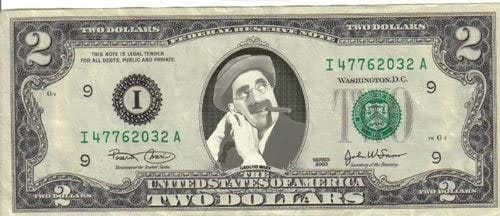
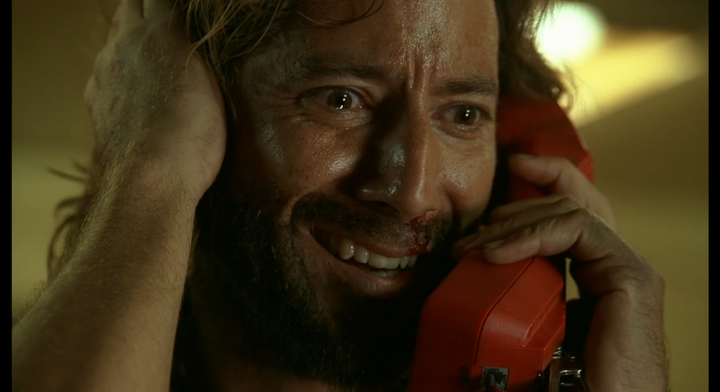

Comments ()